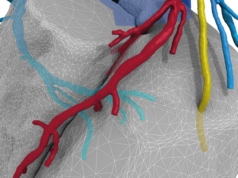
A new study indicates that a delayed approach in patients with transient ST-segment elevation myocardial infarction (STEMI) is associated with similar safety and efficacy outcomes as an immediate approach.
Speaking at EuroPCR (22 May—25 May, Paris, France), Jorrit S Lemkes (VU University Medicine Center, Amsterdam, The Netherlands) reported that “approximately 15% of patients with STEMI show complete normalisation of the ST-segment and relief of symptoms before reperfusion therapy”—i.e. transient STEMI. He added that patients with transient STEMI pose a therapeutic challenge because “it is unclear whether this condition should be considered as STEMI or NSTEMI”. Noting that different approaches are used to manage these conditions—i.e. immediate with STEMI and delayed (based on risk) with NSTEMI—Lemkes said: “current guidelines contain no specific recommendations for the management of transient STEMI”.
Therefore, the aim of the TRANSIENT study was to evaluate a delayed approach with an immediate approach. Of 142 patients, 71 were randomised to undergo immediate coronary angiography and revascularisation and 71 were randomised to undergo delayed angiography and revascularisation.
There was no significant difference between groups in terms of infarct size (the primary endpoint): 1.3% for immediate approach vs. 1.5% for delayed approach (p=0.80). However, treatment after coronary angiography was different—significantly more patients underwent percutaneous coronary intervention (PCI) in the immediate group (90% vs. 75%; p=0.03) and coronary artery bypass grafting was exclusively used in the delayed group (0% vs. 11%; p=0.01). These differences in treatment were despite, Lemkes commented, there being no difference in “extent of coronary artery disease between groups”. There were no significant differences between groups at 30 days in terms of cardiac events or major bleeding.
Lemkes told Cardiovascular News: ““These results suggest that revascularisation in transient STEMI can be performed both immediate and delayed with similar outcome. Physicians can, therefore, take logistical considerations in account. If the patient is being presented directly to the cath lab, I would go ahead and preform PCI. But if there is no cath lab available, I would feel comfortable, admitting the patient to the cardiac care unit and delaying intervention”










